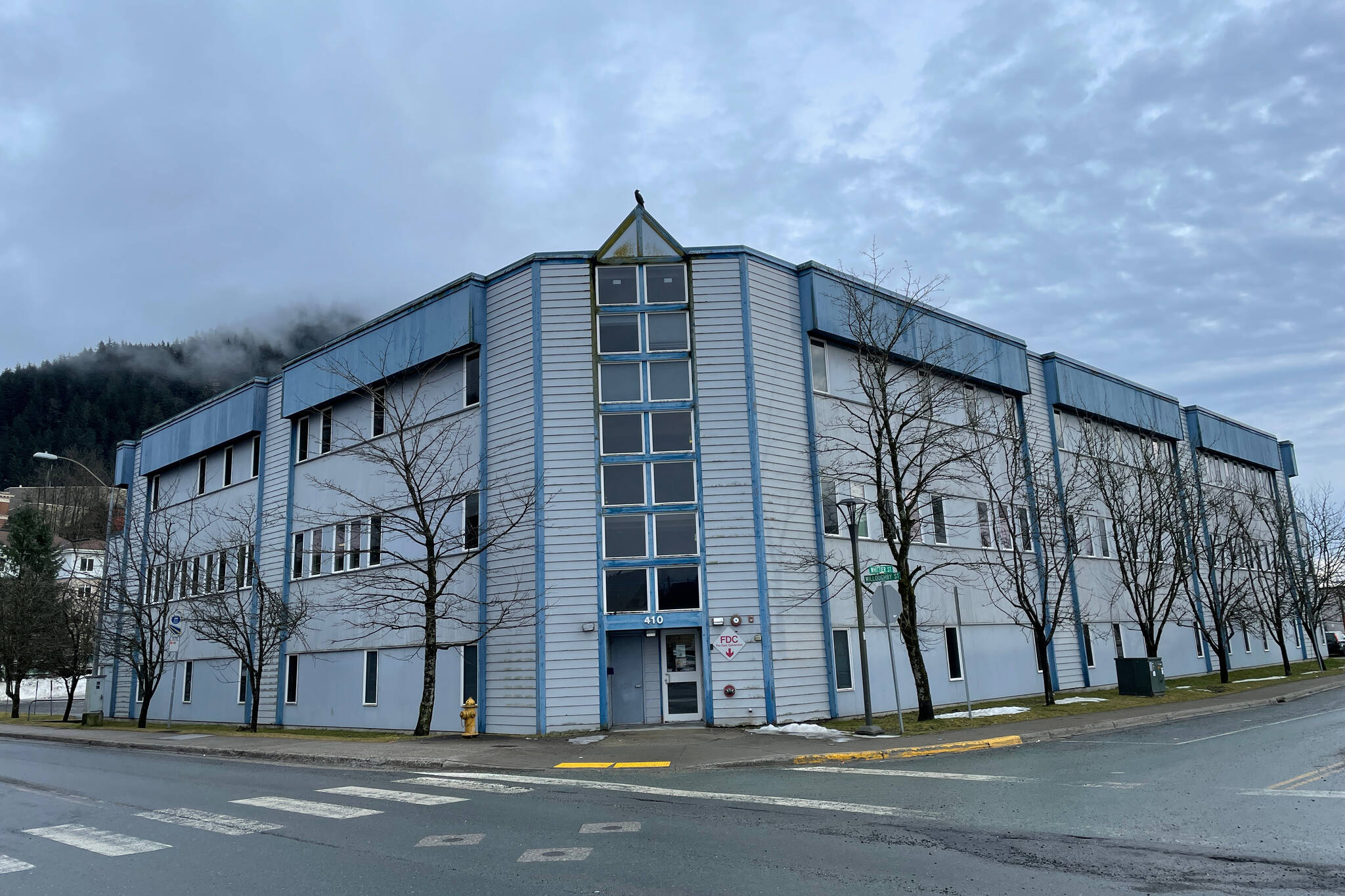With the purchase of two buildings near its Andrew Hope Building , Central Council of Tlingit and Haida Indian Tribes of Alaska has expanded its footprint downtown.
But there’s more yet to come, said President Richard Chalyee Éesh Peterson, who has far-reaching plans to expand the tribe’s holdings further.
“That is the neighborhood of our original village,” Peterson said in an interview. “We’re really trying to consolidate that.”
The two buildings, whose sale was finalized late last year, are located on Willoughby Avenue. One was occupied by offices of the Alaska Department of Environmental Conservation, while the other had a number of tenants. All current tenants will remain in the buildings for the time being, Peterson said, but Tlingit and Haida will begin filling in the vacant space with offices like the tribal courts, which will move into the new buildings. The two buildings combined were assessed by the City and Borough of Juneau at more than $12 million, though Peterson did not disclose to the Empire what they were sold for.
“Those buildings are part of the long-term plan. Really, the COVID short-term need is we weren’t able to separate employees,” Peterson said. “We’re going to be doing some renovations to make sure the airflow is good.”
The conditions for tenants are likely to improve, Peterson said, with Tlingit and Haida’s organic maintenance and construction assets able to rapidly respond to issues within the structures.
“We’ll be managing our own properties,” Peterson said. “We have our own facility maintenance department. (Tenants’) needs will be getting more immediate attention.”
The move comes as part of a push to consolidate more tribal offices downtown, Peterson said, easing access for tribal citizens, especially in a pandemic where traveling via public transit may be contraindicated for some.
“We’ve always wanted to be more centralized and have more of a campus. It’s been a hardship on some of our citizens to go all over town for appointments,” Peterson said. “It’s about bringing people back to the office but it being a safe space, protecting their health and that of their clients.”
Peterson said he hopes to bring other offices to that part of town as well.
“My goal is to move my office back downtown to the Andrew Hope Building,” Peterson said. “In a historical context, I think people view the Andrew Hope building as the headquarters of Tlingit and Haida and it’s important to have the office of the president there.”
Eyes to the horizon
Beyond that, Peterson said, Tlingit and Haida’s expansion ambitions are in full flood.
“We’re just growing. And I expect to continue to grow. It’s about meeting the needs of our citizens,” Peterson said. “I want us to be the answer. I want us to be where our citizens can go to heal and get the assistance we need.”
Peterson said Tlingit and Haida has no desire to go it alone, but to work in concert with organizations like Sealaska, SouthEast Alaska Regional Health Consortium, and other tribes to heal the ails of its citizens.
“It’s about ‘How do we work together to do more?’” Peterson said. “Some of this work we’re doing, everyone could get into it and it still wouldn’t be enough.”
Peterson said Tlingit and Haida is exploring the possibility of developing its own tribal college, offering both traditional degrees and vocational training within the next decade. The tribe is also looking to expand in other directions.
“We’re in a good position to acquire new land or trade. There’s a lot of potential there. There’s a lot of possibilities,” Peterson said. “We used to have a (commercial driver’s license) program. We’re bringing that back. We want anyone who lives in the Southeast, anyone who lives in Juneau, to be able to come here and be able to get that, instead of having to go to Anchorage.
Staff levels have more than doubled since he took the president’s chair, Peterson said.
“When I came onboard as president eight years ago we had 190 employees,” Peterson said. “Now we’re at 420-430.”
That number is likely to grow as the tribe both embraces distance work and expanding services to meet its citizens wherever they are, Peterson said.
“The tribe is in a real growth era. When you go on our website there’s a ton of jobs offered. If you could work from home and be successful, home can be wherever,” Peterson said. “A big goal of the tribe is to meet our citizens where they’re at. And our citizens are all over the world.”
But while distance work is completely viable, the home offices of the tribe will continue to be in Juneau, getting ever larger, Peterson said.
“Juneau is the headquarters of Tlingit and Haida,” Peterson said. “We’re always going to be hiring here.”
• Contact reporter Michael S. Lockett at (757) 621-1197 or mlockett@juneauempire.com.

